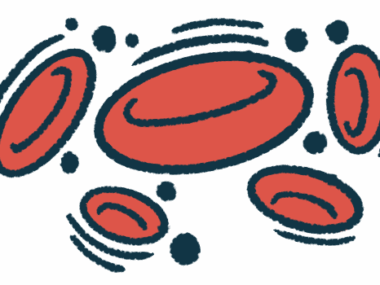Precision, Novartis Partner on New Gene Therapy for Blood Disorders
Written by |

Precision BioSciences and Novartis are teaming up to develop and commercialize a custom gene therapy as a potential treatment approach for certain inherited blood disorders, including beta thalassemia and sickle cell disease (SCD).
Under their new exclusive license and collaboration agreement, the companies will combine Precision’s proprietary ARCUS genome editing platform — featuring specialized gene insertion capabilities — with Novartis’ expertise in drug discovery and marketing.
Precision is expected to develop a custom gene-editing enzyme, called ARCUS nuclease, that is designed to insert a healthy version of a gene within the patient’s genome, the group of all human genes, as a one-time therapy.
Novartis will pay $75 million upfront to Precision, with additional payments of up to $1.4 billion should the collaboration reach specific milestones.
“We identify here a collaborative opportunity to imagine a unique therapeutic option for patients with hemoglobinopathies, such as sickle cell disease and beta thalassemia — a potential one-time treatment administered directly to the patient that would overcome many of the hurdles present today with other therapeutic technologies,” Jay Bradner, president of the Novartis Institutes for Biomedical Research (NIBR), said in a press release.
“We look forward to working with Precision and leveraging the ARCUS technology platform, which could bring a differentiated approach to the treatment of patients with hemoglobinopathies,” he added.
SCD and beta thalassemia are two genetic diseases caused by mutations in the HBB gene. This gene carries instructions for making a subunit of hemoglobin — the protein responsible for carrying oxygen in red blood cells.
In people with SCD, mutated hemoglobin alters the shape of red blood cells, making them stiffer and more prone to attach to other cells. As a result, these misshapen blood cells tend to obstruct small blood vessels and prevent normal blood flow.
Although sickle cell disease may be cured in some patients with stem cell transplants, these procedures are considered risky and do not always work.
The technology behind Precision’s ARCUS is based on a genome-editing enzyme, I-CreI, found in a certain type of algae. It employs specific DNA-cutting enzymes called nucleases, which are developed to insert, remove, or repair the DNA of living cells and organisms.
Using this tech, a healthy version of a gene can be inserted in its usual site and replace the mutated copy. It also can be added at another site within the genome, which is referred to as a safe harbor. This second option allows the production of the healthy protein without affecting the patient’s normal gene activity patterns.
According to the agreement, Precision will develop a custom nuclease that will be designed to insert a healthy copy of the gene at a safe harbor location.
“The in vivo gene editing approach that we are pursuing for sickle cell disease could have a number of significant advantages over other ex vivo gene therapies currently in development,” said Derek Jantz, PhD, chief scientific officer and co-founder of Precision.
“Perhaps most importantly, it could open the door to treating patients in geographies where stem cell transplant is not a realistic option. We believe that the unique characteristics of the ARCUS platform, particularly its ability to target gene insertion with high efficiency, make it the ideal choice for this project, and we look forward to working with our partners at Novartis to bring this novel therapy to patients,” Jantz said.
Under the agreement terms, Precision will develop an ARCUS nuclease and test it in the lab. Then, Novartis will take on the responsibility to advance its research, development, manufacturing, and commercialization. Novartis also will receive an exclusive license to further develop the custom ARCUS nuclease as a potential therapeutic option for SCD and beta thalassemia.
Precision may receive certain research funding and tiered royalties ranging from the mid-single digits to low-double digits on product sales, in addition to the other financial payments.
“We are excited to collaborate with Novartis to bring together the precision and versatility of ARCUS genome editing with Novartis’ gene therapy expertise and commitment to developing one-time, potentially transformative treatment for hard-to-treat inherited blood disorders,” said Michael Amoroso, Precision’s CEO.






